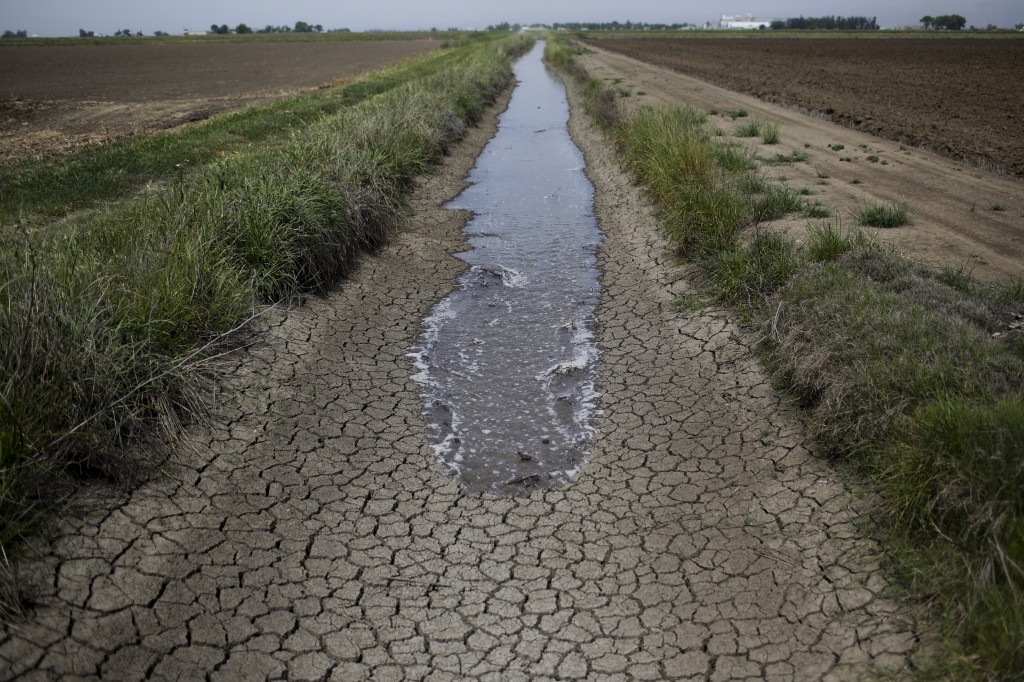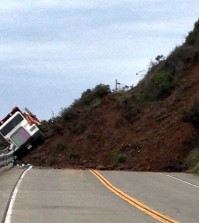- California Assembly OKs highest minimum wage in nation
- S. Korea unveils first graphic cigarette warnings
- US joins with South Korea, Japan in bid to deter North Korea
- LPGA golfer Chun In-gee finally back in action
- S. Korea won’t be top seed in final World Cup qualification round
- US men’s soccer misses 2nd straight Olympics
- US back on track in qualifying with 4-0 win over Guatemala
- High-intensity workout injuries spawn cottage industry
- CDC expands range of Zika mosquitoes into parts of Northeast
- Who knew? ‘The Walking Dead’ is helping families connect
S. California to spend $71 million to battle drought

In this May 1, 2014 photo, irrigation water runs along the dried-up ditch between the rice farms to provide water for the rice fields in Richvale, Calif. A federal agency said Friday it will not release water for most Central Valley farms this year, forcing farmers to continue to scramble for other sources or leave fields unplanted. (AP Photo/Jae C. Hong)
LOS ANGELES (CNS) – With the state facing a fourth straight drought year, the Metropolitan Water District (MWD) board voted today to spend up to $71 million to bolster the Southern California region’s available supply.
The board’s vote authorizes the MWD to secure up to 100,000 acre-feet of additional supplies through one-year water transfers with Sacramento Valley water districts. An acre-foot of water is nearly 326,000 gallons, about the amount used by two typical Southland households in a year.
Also today, the board awarded a Los Angeles-based advertising firm a $5.5 million contract to continue to aggressively promote region-wide conservation. Quigley-Simpson & Heppelwhite Inc. will work with Metropolitan ”in developing a comprehensive, culturally diverse, multimedia advertising and outreach campaign” urging Southern California residents and businesses to continue reducing their water use” in 2015.
“Today’s actions position us to better withstand and respond to continuing drought conditions,” said Metropolitan board Chairman Randy Record. ”A successful education and advertising campaign will further motivate Southland consumers and businesses to conserve even more water and eliminate wasteful practices. The water transfers will augment regional supplies to meet demands this year.”
Metropolitan’s expected deliveries from Northern California through the State Water Project are currently projected at 20 percent. The SWP typically provides about a third of the Southland’s water. Meanwhile, storage in the district’s other supply source — the Colorado River — stands at less than 50 percent of capacity after 15 drought years in the Southwest.
The ad campaign, to be coordinated with Metropolitan’s 26 member public agencies, will supplement its ongoing conservation programs, including $100 million in rebates for water-saving appliances and landscape improvements.
“While the ad campaign will press the need for heightened water conservation this summer when water use is highest, our outreach efforts need to be adaptable to changing climate and water supply conditions as they play out through the year,” General Manager Jeffrey Kightlinger said.
“Even if wetter conditions prevail in coming months, low reservoir levels on the State Water Project, the Colorado River and in Southern California underscore the need to continue prudent use of our remaining supplies,” he said.
Metropolitan’s board is scheduled to decide next month whether it will need to restrict deliveries to its member agencies.
The water transfers authorized by the board today will provide additional supplies that complement conserving water locally to help maintain critical water reserves, Kightlinger said.
Metropolitan is a cooperative of 26 cities and water agencies serving nearly 19 million people in six counties.














